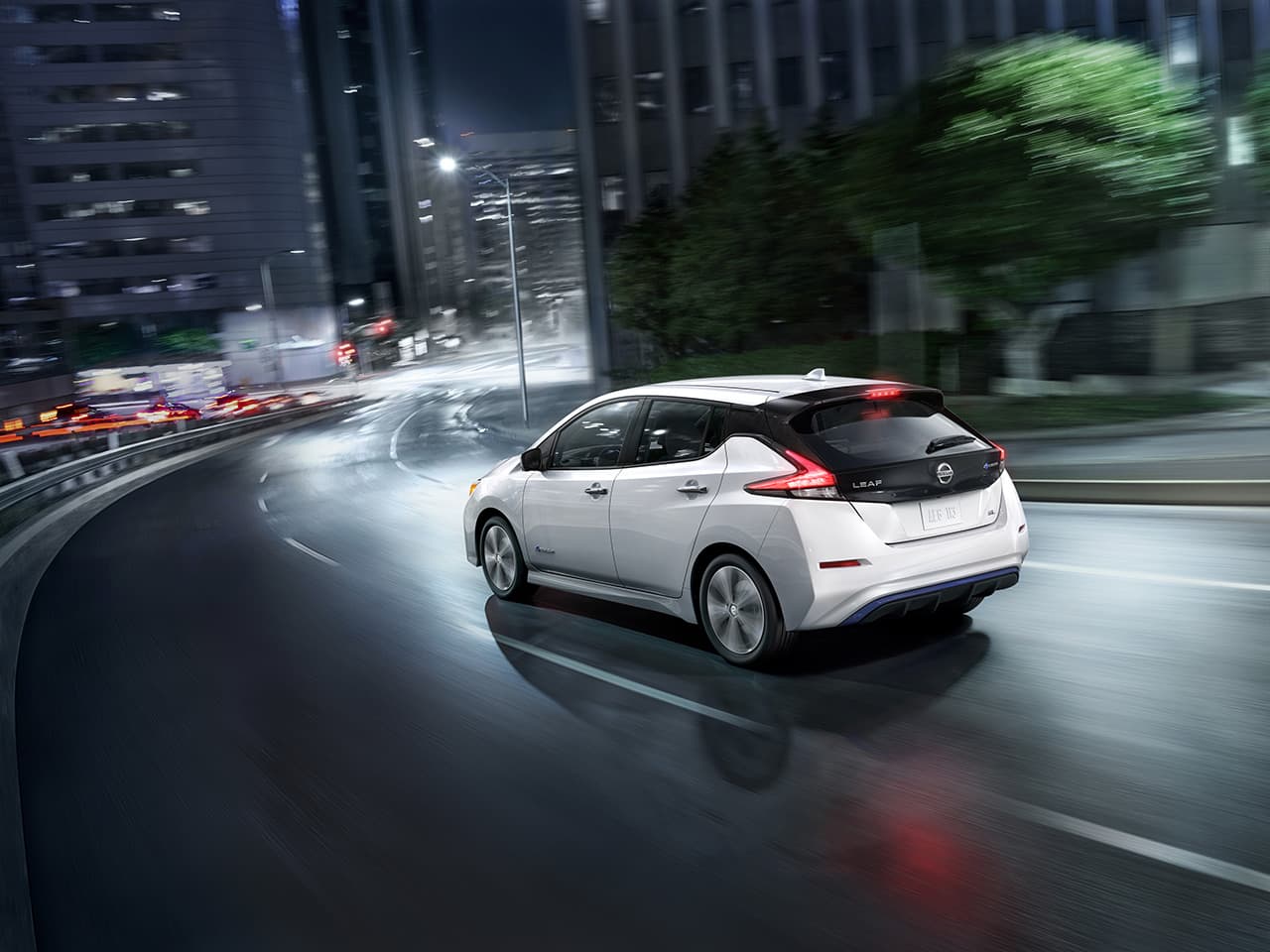ProPilot Assist
Tesla may be at the forefront of advanced and stylish electric vehicles, but it may soon have some serious competition in the form of the 2018 Nissan Leaf.
Nissan finally unveiled the next generation model of its all-electric vehicle this week at an event in Las Vegas’ Thomas & Mack Center, establishing it as an automaker with one of the more affordable electric vehicles soon to hit the market. We've known about its competitive price and mileage for a while, but the inclusion of the ProPilot Assist feature may be what gives the Nissan Leaf a fair shot against Tesla's Model 3.
ProPilot Assist essentially makes it easier to deal with stop-and-go traffic, while also ensuring drivers stay in the center of their lane — even on curvy roads. It accomplishes this by using a forward-facing camera, forward-facing radar, various sensors, and electronic control module.
"Nissan's new ProPilot Assist eases driver workload by reducing the amount of driver acceleration, steering, and braking input under certain driving conditions," Nissan explains in a press release. It's not on par with Tesla Autopilot, but its presence will go a long way to show that Tesla isn't the only company with high-tech driving features.
An Electrifying Competition
Furthermore, Business Insider notes that Nissan is also working on a smart rearview mirror capable of streaming a video feed from a camera mounted on the back. The feature will debut with the 2018 Armada SUV first, but if it comes to the Leaf, it'll be another piece of tech that Nissan can use to entice people.
Nissan won't be the only company competing with Tesla next year, as the Chevy Bolt will still be around at the same price point, but with a better range. Beyond yet, Hyundai is putting out an electric SUV next year, with Porsche planning to release the Mission E a year later. Then there's still Volvo, Toyota, and Volkswagen — all of which are shifting to electric vehicles.
There will soon be an overabundance of electric cars to choose from, which is the best-case scenario. More competition means better features and prices in the future, which will then lead more people to switch from fossil fuel-guzzling vehicles to electric cars. In the end, it will be better for all of us and — more importantly — the environment.
Share This Article
